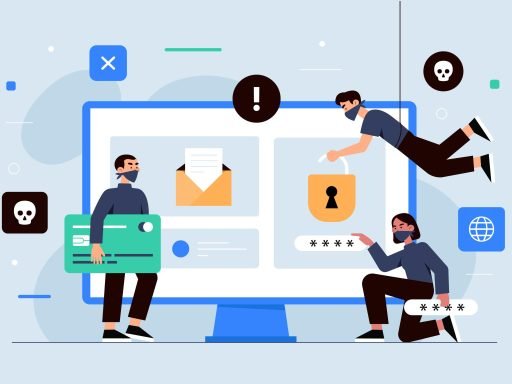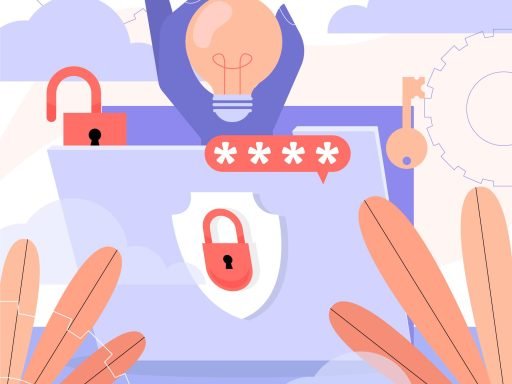Breaking into the field of cybersecurity might seem daunting if you come from a non-technical background, but it’s more achievable than you might think. Cybersecurity is a diverse field that requires a variety of skills, many of which extend beyond coding or deep technical expertise. Whether you’re in marketing, law, management, or another non-technical field, your existing skills can be valuable assets in cybersecurity. This guide will walk you through the steps needed to transition into cybersecurity, along with the resources and strategies to make the shift successfully.
1. Understand the Cybersecurity Landscape
Before diving in, it’s essential to familiarize yourself with the cybersecurity landscape. Cybersecurity is a broad field, encompassing various roles that require different skills and expertise. Understanding these roles will help you identify where your current skills could be best applied.
Key Areas in Cybersecurity:
- Governance, Risk, and Compliance (GRC): Focuses on ensuring that an organization meets regulatory requirements and adheres to internal policies. This area often requires strong organizational and communication skills, which are common in non-technical fields.
- Security Awareness Training: Involves educating employees about security practices. Professionals with backgrounds in education, communication, or marketing can excel in this role.
- Incident Response and Management: Involves responding to and managing cybersecurity incidents. Strong project management and crisis management skills are valuable here.
- Policy Development: Requires creating and enforcing security policies within an organization. This area often benefits from a background in law, policy, or management.
Next Steps: Begin by researching these areas and identifying which ones align with your current skills and interests. Websites like CyberSeek provide detailed maps of cybersecurity roles and career paths.
2. Build a Strong Foundation in Cybersecurity Basics
Even though you don’t need to become a technical expert, having a basic understanding of cybersecurity concepts is crucial. Start with foundational knowledge that will help you grasp more complex topics as you progress.
Recommended Resources:
- Online Courses:
- Cybersecurity Basics by IBM on Coursera: A free course that covers the basics of cybersecurity.
- CompTIA Security+ Certification: An entry-level certification that covers essential security concepts and is highly respected in the industry.
- Books:
- “Cybersecurity for Beginners” by Raef Meeuwisse: A great starting point that explains cybersecurity in simple terms.
- “The Cybersecurity Career Guide” by Alyssa Miller: Offers practical advice for those looking to enter the field.
Next Steps: Dedicate time to completing a foundational course or reading introductory books to build your knowledge base. Aim to understand key concepts such as network security, encryption, and risk management.
3. Leverage Your Existing Skills
Your non-technical background can be an asset in cybersecurity. Many cybersecurity roles require strong analytical skills, problem-solving abilities, and excellent communication—all of which are critical in non-technical careers.
Transferable Skills:
- Communication: Essential for roles in security awareness training, policy development, and even incident management.
- Project Management: Valuable in roles that involve coordinating responses to security incidents or managing compliance projects.
- Analytical Thinking: Useful in roles that require analyzing security threats or assessing risks.
- Legal and Regulatory Knowledge: Critical in governance, risk, and compliance roles, especially with the increasing emphasis on data privacy laws.
Next Steps: Identify how your current skills align with cybersecurity roles. Create a skills inventory and match it to the requirements of different cybersecurity positions. Highlight these transferable skills on your resume and LinkedIn profile.
4. Gain Practical Experience
Practical experience is crucial in cybersecurity. Even if you come from a non-technical background, hands-on experience can help bridge the gap between theory and practice.
Ways to Gain Experience:
- Volunteer for Cybersecurity Projects: Offer to help with cybersecurity tasks at your current workplace or volunteer for a non-profit organization.
- Internships: Look for internships or entry-level positions in cybersecurity that don’t require a technical background.
- Home Labs: Set up a home lab using virtual machines to practice basic cybersecurity skills. Websites like TryHackMe and Hack The Box offer beginner-friendly labs.
Next Steps: Start small by volunteering or taking on cybersecurity-related tasks at your current job. If possible, set up a basic home lab to practice.
5. Earn Relevant Certifications
Certifications can help validate your skills and make you a more attractive candidate in the cybersecurity job market. There are several certifications that are accessible to those with non-technical backgrounds.
Top Certifications for Non-Technical Professionals:
- CompTIA Security+: A foundational certification that demonstrates basic cybersecurity knowledge.
- Certified Information Systems Auditor (CISA): Ideal for those interested in governance, risk management, and compliance.
- Certified Information Systems Security Professional (CISSP): While more advanced, CISSP is highly regarded and covers a broad range of cybersecurity topics.
Next Steps: Choose a certification that aligns with your career goals. Prepare by studying relevant materials and taking practice exams. Earning a certification can significantly boost your credibility in the field.
6. Network with Cybersecurity Professionals
Networking is vital when transitioning into a new field. Connecting with cybersecurity professionals can provide valuable insights, job leads, and mentorship opportunities.
Networking Strategies:
- Join Cybersecurity Groups: Participate in online forums like Reddit’s r/cybersecurity or LinkedIn groups focused on cybersecurity.
- Attend Conferences and Meetups: Engage with the community by attending events like Black Hat or BSides. Many of these events offer virtual attendance options.
- Informational Interviews: Reach out to cybersecurity professionals for informational interviews. These conversations can provide insights into the field and help you build relationships.
Next Steps: Start by joining online communities and participating in discussions. Consider attending a local cybersecurity meetup or virtual conference to expand your network.
7. Tailor Your Job Search Strategy
When you’re ready to apply for cybersecurity jobs, it’s important to tailor your resume and job search strategy to highlight your strengths and the unique perspective you bring from your non-technical background.
Tips for Job Searching:
- Highlight Transferable Skills: Emphasize how your previous experience and skills are relevant to the cybersecurity roles you’re applying for.
- Target Entry-Level Positions: Look for roles like Security Analyst, IT Auditor, or Risk Analyst, which may require less technical expertise and can serve as a gateway into the field.
- Use Keywords: Optimize your resume with keywords from the job descriptions you’re applying to. This increases the chances of passing through automated applicant tracking systems (ATS).
Next Steps: Update your resume and LinkedIn profile to reflect your cybersecurity aspirations. Start applying for jobs that align with your skills and certifications.
Conclusion
Transitioning into cybersecurity from a non-technical background is entirely possible with the right approach. By leveraging your existing skills, gaining foundational knowledge, and networking within the industry, you can successfully pivot into this exciting and in-demand field. The journey might require dedication and effort, but the rewards—a challenging and fulfilling career in cybersecurity—are well worth it.
Call to Action: Take the first step today by enrolling in a foundational cybersecurity course or reaching out to professionals in the field. Your non-technical background can be a strength, bringing unique perspectives and skills to the ever-evolving world of cybersecurity.












